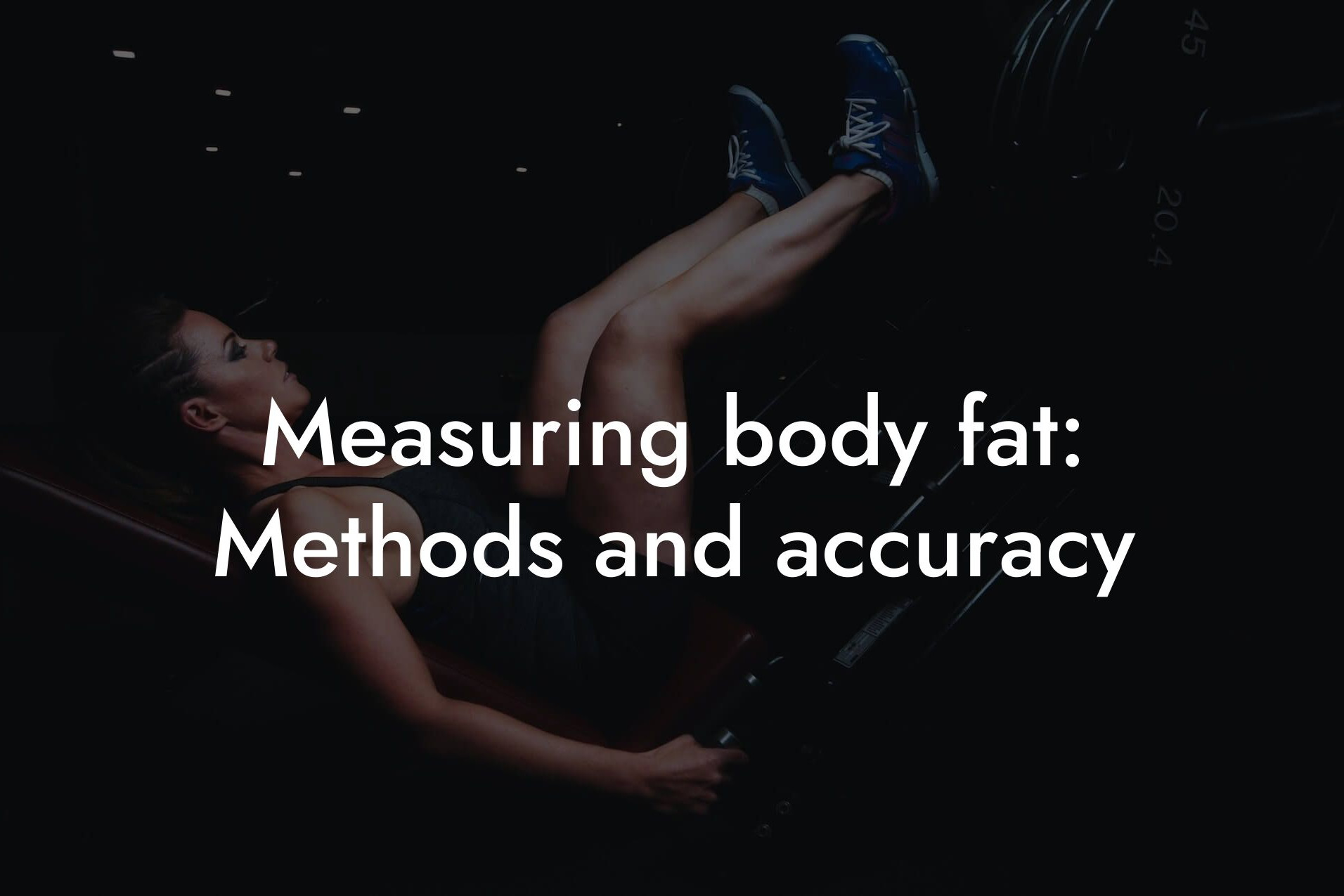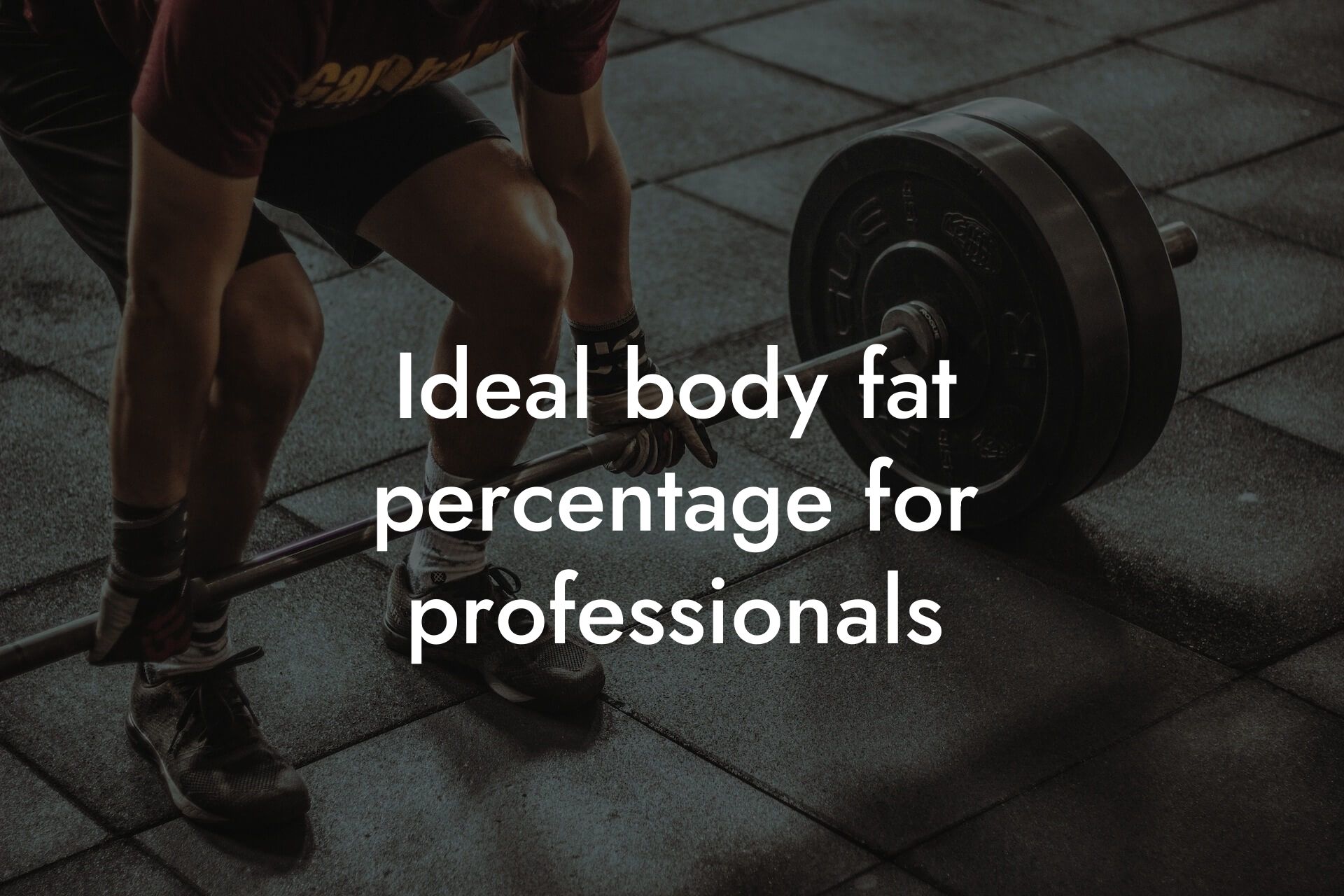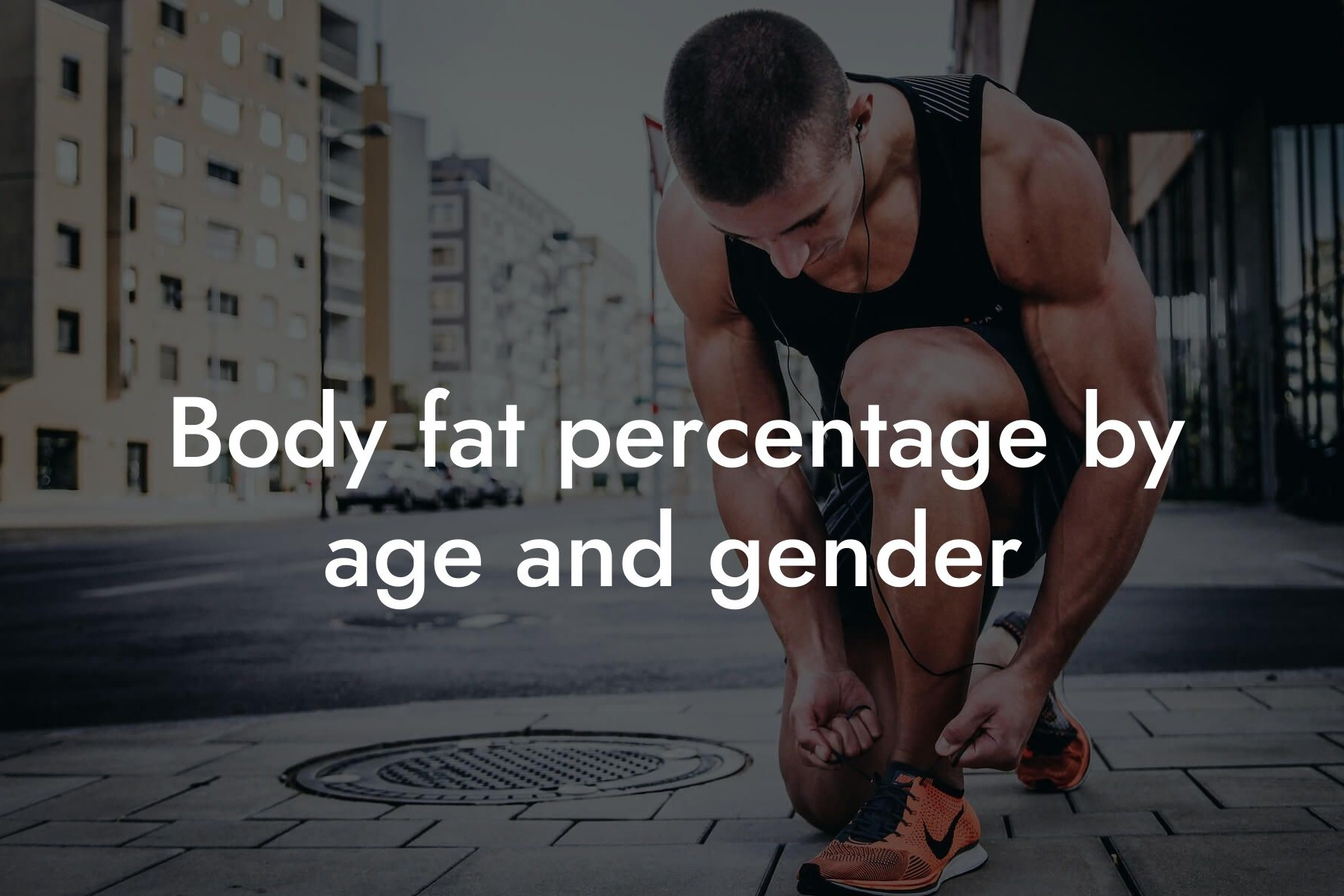As high-earning professionals, you understand the importance of maintaining a healthy and fit physique. However, with the abundance of misinformation available, it's easy to get caught up in common myths about body fat. At Tano Performance Group, we're committed to providing you with accurate and reliable information to help you achieve your fitness goals. In this article, we'll debunk common myths about body fat and provide you with a comprehensive understanding of this complex topic.
Table of Contents
- The Myth: Low Body Fat Percentage is Always Healthy
- The Myth: Body Fat is Only Stored in Visible Areas
- The Myth: All Body Fat is Created Equal
- The Myth: Crash Diets are an Effective Way to Lose Body Fat
- The Myth: Body Fat is Only a Cosmetic Issue
- The Myth: You Can Spot Reduce Body Fat
- The Myth: Body Fat Percentage is the Only Measure of Health
- Frequently Asked Questions
The Myth: Low Body Fat Percentage is Always Healthy
One of the most pervasive myths about body fat is that having a low body fat percentage is always healthy. While it's true that excessive body fat can increase the risk of chronic diseases, having too little body fat can be just as detrimental. Essential body fat, which includes fat stored in the brain, bones, and organs, is necessary for proper bodily function. In fact, the American Council on Exercise recommends that men have at least 6-13% body fat and women have at least 16-23% body fat for optimal health.
The Myth: Body Fat is Only Stored in Visible Areas
Many people believe that body fat is only stored in visible areas such as the stomach, hips, and thighs. However, body fat can be stored in various areas of the body, including visceral fat, which surrounds internal organs. Visceral fat is a major risk factor for chronic diseases, including heart disease and type 2 diabetes. Our DEXA machine provides a comprehensive body assessment, including a measurement of visceral fat, to give you a complete picture of your body composition.
The Myth: All Body Fat is Created Equal
Another common myth is that all body fat is created equal. However, there are different types of body fat, each with its own unique characteristics and functions. Brown fat, for example, is a type of fat that is highly metabolically active and can actually help with weight loss. On the other hand, white fat is less metabolically active and can contribute to weight gain. Understanding the different types of body fat can help you develop a more effective fat loss strategy.
The Myth: Crash Diets are an Effective Way to Lose Body Fat
Crash diets are often touted as a quick and easy way to lose body fat. However, these diets are often unsustainable and can lead to a loss of muscle mass, rather than body fat. Additionally, crash diets can slow down your metabolism, making it harder to lose weight in the long run. A more effective approach is to focus on making sustainable lifestyle changes, including a balanced diet and regular exercise.
The Myth: Body Fat is Only a Cosmetic Issue
Many people view body fat as solely a cosmetic issue, rather than a health concern. However, excess body fat can increase the risk of chronic diseases, including heart disease, type 2 diabetes, and certain types of cancer. Additionally, excess body fat can also affect mental health, with studies showing a link between obesity and depression. By understanding the health risks associated with excess body fat, you can take proactive steps to reduce your risk and improve your overall health.
The Myth: You Can Spot Reduce Body Fat
Spot reduction is the idea that you can lose body fat in a specific area of the body through targeted exercise. However, this myth has been debunked by numerous studies, which show that fat loss occurs throughout the body, rather than in specific areas. While exercise can help burn calories and contribute to fat loss, it's important to focus on overall fat loss, rather than trying to target specific areas.
The Myth: Body Fat Percentage is the Only Measure of Health
Finally, many people believe that body fat percentage is the only measure of health. However, this is a narrow view that doesn't take into account other important health metrics, such as bone density, muscle mass, and visceral fat. Our DEXA machine provides a comprehensive body assessment, including measurements of bone density, muscle mass, and visceral fat, to give you a complete picture of your overall health.
In conclusion, there are many common myths about body fat that can lead to misinformation and ineffective fat loss strategies. By understanding the facts about body fat, including the importance of essential body fat, the different types of body fat, and the health risks associated with excess body fat, you can take proactive steps to improve your overall health and achieve your fitness goals. At Tano Performance Group, we're committed to providing you with accurate and reliable information to help you achieve your goals. Contact us today to learn more about our DEXA machine and how it can help you achieve optimal health and fitness.
Frequently Asked Questions
What is body fat, and why is it important to understand it?
Body fat, also known as adipose tissue, is a type of connective tissue that stores energy in the form of fat. It's essential to understand body fat because it plays a crucial role in our overall health and well-being. Excess body fat can increase the risk of chronic diseases, such as diabetes, heart disease, and certain types of cancer, while a healthy amount of body fat is necessary for hormone regulation, insulation, and energy storage.
Is it true that all body fat is bad?
No, not all body fat is bad. While excess body fat can be detrimental to our health, a certain amount of body fat is necessary for our bodies to function properly. In fact, having some body fat helps to regulate hormones, keep us warm, and provide energy during periods of famine or intense physical activity.
What is the difference between visceral fat and subcutaneous fat?
Visceral fat is the fat that accumulates around our internal organs, such as the liver, stomach, and intestines. This type of fat is associated with a higher risk of chronic diseases, such as heart disease and type 2 diabetes. Subcutaneous fat, on the other hand, is the fat that lies just beneath the skin and is typically found in the abdominal area, hips, and thighs. While both types of fat can be problematic in excess, visceral fat is considered more dangerous due to its proximity to vital organs.
How do I know if I have too much body fat?
There are several ways to determine if you have too much body fat. One common method is to measure your body fat percentage using a body fat caliper or a dual-energy X-ray absorptiometry (DXA) scan. You can also use a tape measure to calculate your waist-to-hip ratio or consult with a healthcare professional who can assess your body composition and provide personalized guidance.
What is the ideal body fat percentage for men and women?
The ideal body fat percentage varies depending on age, sex, and athletic goals. Generally, for men, a healthy body fat percentage is between 8-19%, while for women, it's between 21-33%. However, these ranges can vary depending on individual factors, such as muscle mass and bone density.
Can I spot reduce body fat?
No, it's not possible to spot reduce body fat. When we lose weight, our bodies lose fat throughout, not just in one specific area. This is because fat loss is a systemic process that involves hormonal changes and metabolic shifts. While we can target certain muscle groups through exercise, we can't control where our bodies lose fat.
Do crunches help burn belly fat?
Unfortunately, crunches alone are not effective for burning belly fat. While crunches can help strengthen the muscles in your abdominal area, they don't specifically target visceral fat. To burn belly fat, you need to focus on a comprehensive exercise routine that includes cardio, strength training, and high-intensity interval training (HIIT), combined with a healthy diet and lifestyle.
Is it true that eating fat makes you fat?
No, eating fat doesn't necessarily make you fat. In fact, a diet that includes healthy fats, such as avocados, nuts, and olive oil, can actually help with weight loss and overall health. The key is to focus on whole, nutrient-dense foods and avoid processed and high-calorie foods that are high in added sugars and unhealthy fats.
Can I lose body fat without exercise?
While exercise is an important component of weight loss and fat loss, it's possible to lose body fat without exercise. A healthy diet that is low in calories and high in nutrients, combined with lifestyle changes, such as getting enough sleep and managing stress, can help with fat loss. However, incorporating exercise into your routine can help you lose fat more efficiently and maintain weight loss over time.
How long does it take to lose body fat?
The amount of time it takes to lose body fat varies depending on individual factors, such as starting body fat percentage, diet, exercise routine, and overall health. Generally, a safe and sustainable rate of fat loss is 1-2 pounds per week. This means that it can take several weeks or even months to notice significant changes in body composition.
What is the role of hormones in body fat regulation?
Hormones play a crucial role in body fat regulation. Hormones, such as insulin, leptin, and cortisol, help to regulate metabolism, appetite, and fat storage. Imbalances in these hormones can lead to changes in body fat distribution and overall body composition.
Can stress cause weight gain and increased body fat?
Yes, chronic stress can contribute to weight gain and increased body fat. When we're stressed, our bodies produce cortisol, a hormone that promotes fat storage around the midsection. Additionally, stress can lead to overeating and poor food choices, which can further exacerbate weight gain and body fat accumulation.
How does sleep affect body fat?
Sleep is essential for body fat regulation. During sleep, our bodies repair and regenerate tissues, including muscle and fat cells. Lack of sleep can disrupt hormones that regulate hunger and fullness, leading to overeating and weight gain. Additionally, sleep deprivation can increase inflammation, which can contribute to chronic diseases and body fat accumulation.
Can certain foods help with fat loss?
Yes, certain foods can help with fat loss. Foods high in protein, such as lean meats and fish, can help build muscle mass, which can increase metabolism and fat loss. Foods high in fiber, such as fruits and vegetables, can help with satiety and reduce calorie intake. Additionally, foods rich in healthy fats, such as avocados and nuts, can help with hormone regulation and fat loss.
Is it true that low-carb diets are the best for fat loss?
No, low-carb diets are not the only effective way to lose fat. While low-carb diets can be beneficial for some people, others may find that a balanced diet that includes complex carbohydrates, such as whole grains and fruits, is more effective for fat loss. The key is to find a diet that works for you and your lifestyle, and to focus on whole, nutrient-dense foods.
Can I build muscle and lose fat at the same time?
Yes, it's possible to build muscle and lose fat simultaneously. This process is known as body recomposition. To achieve body recomposition, you need to focus on a combination of strength training, cardio, and a healthy diet that provides adequate protein and calories for muscle growth and fat loss.
How does age affect body fat?
As we age, our bodies naturally lose muscle mass and gain body fat. This process is known as sarcopenia. Additionally, hormonal changes that occur with aging, such as decreased testosterone and growth hormone, can contribute to increased body fat. However, with a healthy diet and regular exercise, it's possible to maintain a healthy body composition and reduce the risk of chronic diseases associated with excess body fat.
Can certain supplements help with fat loss?
While some supplements, such as green tea extract and conjugated linoleic acid (CLA), may have a small effect on fat loss, they should not be relied upon as the sole means of weight loss. A healthy diet and regular exercise are the foundation of any successful fat loss program. Additionally, it's essential to consult with a healthcare professional before adding any supplements to your routine.
How does body fat affect bone density?
Excess body fat can have a negative impact on bone density. Visceral fat, in particular, has been shown to increase the risk of osteoporosis and fractures. On the other hand, a healthy amount of body fat can help to support bone health by providing cushioning and support for joints.
Can I get rid of cellulite?
Cellulite is a common condition characterized by dimpled skin on the thighs, hips, and buttocks. While it's not possible to completely eliminate cellulite, a healthy diet, regular exercise, and proper skin care can help to reduce its appearance. Additionally, certain treatments, such as massage and radiofrequency, may help to improve skin texture and reduce the appearance of cellulite.
How does body fat affect mental health?
Excess body fat can have a negative impact on mental health, particularly in individuals who are self-conscious about their appearance. Additionally, the emotional stress of carrying excess body fat can contribute to anxiety, depression, and low self-esteem. On the other hand, achieving a healthy body composition can improve mental health and overall well-being.
Can I maintain fat loss over time?
Yes, it's possible to maintain fat loss over time. The key is to focus on sustainable lifestyle changes, such as a healthy diet and regular exercise, rather than quick fixes or fad diets. Additionally, it's essential to monitor progress and make adjustments as needed to ensure that you're maintaining a healthy body composition.
Here are some related articles you might love...
- Measuring body fat: Methods and accuracy
- Ideal body fat percentage for professionals
- Body fat percentage by age and gender
- How body fat impacts overall health
- Body fat distribution: What it means for your health
- How to lower body fat percentage safely
- Body fat vs muscle mass: What matters more?
- The relationship between body fat and productivity
- The role of diet in managing body fat
Zak Faulkner
Zak Faulkner is a leading authority in the realm of physical health and body composition analysis, with over 15 years of experience helping professionals optimise their fitness and well-being. As one the experts behind Tano Performance Group, Zak has dedicated his career to providing in-depth, science-backed insights that empower clients to elevate their physical performance and overall health.
With extensive knowledge of DEXA technology, Zak specializes in delivering comprehensive body assessments that offer precise data on body fat, muscle mass, bone density, and overall physique. His expertise enables individuals to make informed decisions and achieve their fitness goals with accuracy and confidence. Zak’s approach is rooted in a deep understanding of human physiology, combined with a passion for helping clients unlock their full potential through personalised strategies.
Over the years, Zak has earned a reputation for his commitment to excellence, precision, and client-focused service. His guidance is trusted by top professionals who demand the best when it comes to their health. Whether advising on fitness programs, nutritional strategies, or long-term wellness plans, Zak Faulkner’s insights are a valuable resource for anyone serious about taking their health and fitness to the next level.
At Tano Performance Group, Zak continues to lead our Content Team revolutionising how professionals approach their physical health, offering unparalleled expertise that drives real results.




